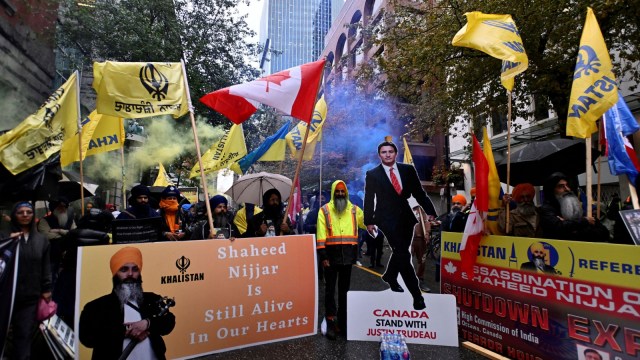Canadian study permits to Indian students fell by 86% in last quarter
Official data, not reported previously, indicated a decline from 108,940 to 14,910 study permits during the fourth quarter of 2023 as compared to the preceding quarter
 Immigration Minister Marc Miller emphasized that ongoing diplomatic tensions are likely to impede the permit issuance process, stating, "Our relationship with India has significantly hampered our ability to process applications from India." (REUTERS)
Immigration Minister Marc Miller emphasized that ongoing diplomatic tensions are likely to impede the permit issuance process, stating, "Our relationship with India has significantly hampered our ability to process applications from India." (REUTERS)There has been an 86% decrease in the issuance of study permits to Indian students in Canada during the fourth quarter of 2023 as compared to the preceding quarter. A Reuters report from Ottawa said that official data,
not reported previously, indicated a decline from 108,940 to 14,910 permits.
This downturn resulted from the expulsion of Canadian diplomats by India, who were responsible for processing permits. Moreover, fewer Indian students applied due to diplomatic tensions stemming from a dispute over
the murder of a Sikh separatist leader Hardeep Singh Nijjar in Canada, according to a statement from a prominent Canadian official provided to Reuters.
In an interview, Immigration Minister Marc Miller expressed skepticism about a swift rebound in the issuance of study permits to Indian students. The diplomatic strain intensified when Canadian Prime Minister Justin Trudeau suggested evidence linking Indian government agents to the murder of Hardeep Singh Nijjar in British Columbia.
Miller emphasized that ongoing diplomatic tensions are likely to impede the permit issuance process, stating, “Our relationship with India has significantly hampered our ability to process applications from India.”
In October, Canada responded to New Delhi’s orders by recalling 41 diplomats, impacting its diplomatic presence in India. Additionally, the dispute has led Indian students to explore educational opportunities in other countries, contributing to an 86% decrease in study permits issued to Indians in the fourth quarter of the previous year.
C. Gurusubramanian, counsellor for the High Commission of India in Ottawa, highlighted concerns among Indian international students about residential and teaching facilities at some Canadian institutions, prompting consideration of alternative options.
Notably, Indians constitute the largest group of international students in Canada, receiving over 41% of permits in 2022. The diplomatic tensions and subsequent decline in study permits represent a significant challenge for
Canadian universities, which heavily rely on international students, contributing approximately C$22 billion ($16.4 billion) annually.
Miller acknowledged the government’s intention to implement measures, including a possible cap, during the first half of this year to address the overwhelming volume of international students entering the country. Canada,
a sought-after destination for its post-study work permit policies, plans to scrutinize postgraduate work permits and regulate designated learning institutes to curb the influx of international students. Concerns about
labor shortages have prompted discussions about limiting off-campus work hours for international students.
Despite the government’s projection of a surge in international student numbers for 2023, with 40% expected to be Indian students, Miller acknowledged a decline in permits issued to Indian students last year while underscoring their continued status as the largest group.







